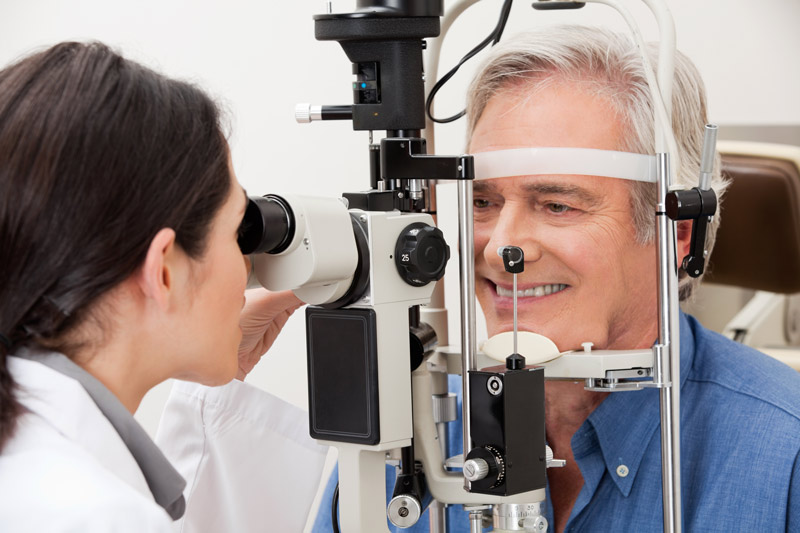Optometrists carry out detailed examinations of the eyes to detect defects in vision, signs of injury, ocular diseases (diseases of the eye) or abnormality, and problems with general health.
By making a detailed examination of the eye, optometrists may be able to identify whether a patient has conditions such as diabetes or high blood pressure.
As an optometrist working in a high street practice, you would:
- make detailed examination of the health of the eyes
- offer clinical advice regarding eye health and vision correction
- prescribe spectacles or contact lenses. You might also dispense, fit and supply spectacles or contact lenses
- make a referral for a specialist’s advice if required – for example is a patient needs surgery or specialist treatment
- you may supervise trainee optometrists, dispensing opticians, and/or medical students during their training.
- If you work in a hospital or an eye clinic you’d be involved in more specialised areas of optometry such as treating and managing patients with:
- glaucoma (an eye disease more common in black people and among the elderly) or
- macular degeneration, which is the most common cause of blindness in western society
Your Optometrist (Optician) can refer you for an NHS Low Vision Assessment.
Dispensing Optician
Dispensing Opticians fit glasses and contact lenses working from the prescriptions written by an ophthalmic practitioner or ophthalmologist. They also fit and dispense Low Vision Aids such as magnifying glasses or telescopic spectacles. They don't carry out eye tests.
A Dispensing Optician can give you advice on types of lenses, such as single-vision or bifocal (lenses with two distinct optical powers), and help you to choose frames and other optical aids. They also advise patients on how to wear and care for their spectacles or contact lenses.
Ophthalmologists
Ophthalmologists (Eye Surgeons) are doctors that specialise in the medical and surgical care of your eyes and the visual system.
They are based at the hospital. They have special qualifications and experience in eye disorders and in treating them with appropriate medicine and surgery.
You may be referred to one to check that your eyes are healthy.
They also look into the prevention of eye disease and injury. An Ophthalmologist treats patients of all ages, from premature babies to the elderly.
The conditions dealt with in Ophthalmology can range from eye trauma to cataracts, diabetic eye conditions – such as diabetic retinopathy – as well as congenital and genetic eye problems.
Orthoptists
Orthoptists are specialists in squints and eye movement disorders. They investigate and identify problems relating to the development of the visual system, including:
- squint and lazy eyes in children (orthoptists often perform vision screening of children in schools and community health centres)
- adults with learning difficulties
- adults with double vision or a binocular vision problem


